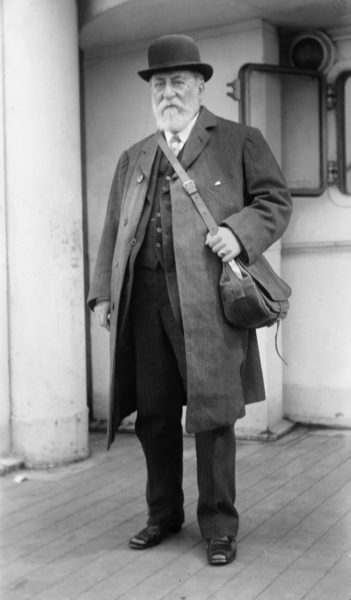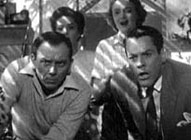In last week's series of letters, Alberta Barnes and I discussed Mendelssohn's Octet. This week we're tackling Saint-Saens's Symphony No. 3 in C Minor, Op. 78, which, for me, was overwhelming, rangy, and gorgeous. If you need more listening or sheet music recommendations, you can browse our sheet music selection of Mendelssohn here or our sheet music selection of Saint-Saens here. Have a favorite piece you want us to write about? Leave a commment below or send me an email at joec@sharmusic.com.
Dear Alberta,
I'm having a lot of feelings after listening to Saint-Saens's Symphony No. 3 in C Minor, Op. 78. Maybe too many feelings. Is this normal after listening to a late Romantic symphony? Is the storm and stress all me or was Symphony No. 3 just a wild one?
 (I can't help but wonder if I brought this intensity to the piece. In the 1956 cult classic Invasion of the Body Snatchers, Dr. Miles Bennell glibly tells one of his patients, who thinks her father is not her father but an imposter, "The trouble is inside you." I'm wondering if this isn't a case when Dr. Bennell might tell me the same thing: it's not Saint-Saens; it's you, Mr. Chapman.)
(I can't help but wonder if I brought this intensity to the piece. In the 1956 cult classic Invasion of the Body Snatchers, Dr. Miles Bennell glibly tells one of his patients, who thinks her father is not her father but an imposter, "The trouble is inside you." I'm wondering if this isn't a case when Dr. Bennell might tell me the same thing: it's not Saint-Saens; it's you, Mr. Chapman.)
After our discussion of joy in Mendelssohn's Octet last week, I was in awe of the vastness, the scope and range, of Symphony No. 3. Of course, there's a simple explanation for it: it's for an orchestral symphony and not an octet. In comparison to the Octet, though, it just felt bigger, so big that I almost couldn't handle it. (It was like going to a huge art gallery, like the National Gallery of Art in DC, and being swept up by painting after painting, without much rest.)
But I liked it; I liked the inclusiveness of the symphony. It made me think that a symphony can do something an octet or a solo piece just can't: it can be like a novel, sweeping, rangy, the whole of our emotional lives contained in forty minutes. It also made me think of a line from a poem by my former teacher, Charles Wright: "You've got to write it all down." I wonder if Saint-Saens and Wright would agree with each other: that we should put our whole life, somehow, in a symphony or poem or novel or film.
The unexamined life’s no different from
the examined life—
Unanswerable questions, small talk,
Unprovable theorems, long-abandoned arguments—
You’ve got to write it all down.
Landscape or waterscape, light-length on evergreen, dark sidebar
Of evening,
you’ve got to write it down. (from "Black Zodiac")
Wright doubts that art helps anyone ("The unexamined life's no different from the examined life"), but he does believe that we should record our lives, the small talk and landscape and "light-length on evergreen," and maybe Saint-Saens is right there with him. What I want to say, I guess, is that Symphony No. 3 seemed to contain my whole life.
 This whole is not always peaceful, either. The opening of the symphony misled me, lulled me into a reverie of calm: the gentle strings, the clarity of first flute and oboe, made me think of the Greek word ataraxia, which literally means "freedom from disturbance."
This whole is not always peaceful, either. The opening of the symphony misled me, lulled me into a reverie of calm: the gentle strings, the clarity of first flute and oboe, made me think of the Greek word ataraxia, which literally means "freedom from disturbance."
I couldn't have been more wrong! Although the calm of the opening returns at the end of the first movement (or, if you insist on putting this symphony in four movements, the end of the second movement), it's soon lost. I thought I was listening to Sigur Ros and before the two-minute mark I was hearing something closer to Bernard Hermann's score for Psycho. Symphony No. 3 never regains the calm of its opening minute-and-a-half, which, I think, gives the piece almost an emotional memory.
Tell me what's going on, Alberta. Do other people want to cry, high-five someone, take a nap, run away, and kiss someone, all at the same time, when they listen to this piece? Should I call Dr. Miles Bennell?
Yours,
Joe


